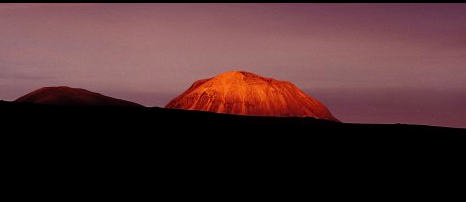West Nordic Studies: Governance and Sustainable Management is a multidisciplinary Master's Programme (120 ECTS) in West Nordic Studies offered jointly by the partner universities.

The programme aims to provide specific knowledge of the Circumpolar North, combined with abilities to manage and link contemporary issues and past developments on orientation in the major themes of the present debate on societal challenges. The objective is to increase knowledge of the common issues of the area. The aim is to graduate candidates that can understand and meet the complicated challenges of coastal Norway, Iceland, Greenland and the Faroe Islands (the Nora region) as part of the Circumpolar North complexities and are able to strengthen networking in the area. WNS will offer a comparative perspective in meeting the urgent challenges the region is facing today including the social implications of climate change affecting scarce populations and micro-economies; long distances; limited working opportunities; gender issues in society and education; threats to indigenous culture and societal security; contested issues of identity and cultural heritage; the quest for natural resources; good governance and sustainable management.
The programme includes studies in WNS home universities, joint intensive course at the University of Akureyri, studies completed at other partner universities and a Master's thesis. WNS studies can be completed in four semesters. Each WNS student is required to complete at least 30 ECTS credits at another partner university abroad. The length of the study abroad period can vary according to the student's individual study plan.
Partner Universities:
University of the Faroe Islands
The University of the Faroe Islands offers students a MA/MSc in West Nordic Studies, Governance and Sustainable Management with emphasis on developing a broad overview of governance and sustainability issues from an transdisciplinary perspective in both theory and practice. The programme is research and practical based, and core courses at the University of the Faroe Islands are oriented towards applied knowledge and dialogue with policy, business, and civil society actors. The programme includes compulsory international exchange between 40 and 70 ECTS-credits at the other West Nordic partner universities. The programme is mainly taught in English.
University of Greenland
The MA program is to give the students in-depth knowledge in some core disciplines such as political science, sociology, economics and international law. The focus is primarily on Greenlandic and Arctic relations. MA-students should on an international level be able to describe, formulate, analyze and process various problems related to the core areas above. MA students will be graduated as Master of Social Sciences.
University of Akureyri
THE POLAR LAW PROGRAMS AT THE UNIVERSITY OF AKUREYRI
The emphasis of the polar law master programs at the University of Akureyri is on both international and domestic laws, as these concern the Arctic and Antarctica, concerning issues of environmental law, biodiversity, climate change, human rights, the rights of indigenous peoples, good governance, natural resources, the law of the sea, transportation, international cooperation, and sovereignty and boundary disputes on land and at sea. Leading teachers come from different domestic and foreign academic institutions. All courses in polar law are taught in English. The diversity of backgrounds of the polar law students is recognized and a flexible study environment is offered. The studies prepare students for work with different government bodies, international organizations, NGOs, indigenous peoples, and universities and research institutions.
University of Iceland I
Specialization: Environment and Natural Resources in the High North.
Organized by: Environment and Natural Resources Graduate Programme and Institute for Sustainability Studies, University of Iceland.
The earth is witnessing global environmental change that is unique in its history. These changes are expected to impact societies worldwide, but nowhere is the impact more visible than in the Arctic. The melting of glaciers and sea-ice in the region will have significant consequences in the area as well as worldwide. This specialization, explores these issues, applying a multidisciplinary perspective. Students will gain an understanding of the natural and physical systems that form the basis of the changes taking place and the environmental governance and management methods that can be used to push the region towards sustainable development and green growth.
University of Iceland II
Specialization: Small states and societies.
Organized by: the Centre for Small State Studies and the Centre for Arctic Policy Studies, University of Iceland.
The governance and culture of small states and societies in the Arctic differs in many ways from the large states in the region. In this specilization emphases will be placed on exploring the opportunities and constraints they are up against, such as security challenges, means of influencing the international community, the dynamics of cultural identities as well as public administration and governance. This will be placed in local and global contexts within the social sciences and humanities and related to both past and present developments in the wider Arctic area.
University of Nordland
The specialization in West Nordic Studies: Governance and sustainable management will provide you with necessary knowledge and skills to participate in local governance and in the management of local resources and development in different social contexts.
The West Nordic coastal states have abundant natural resources and a scattered population in common. Your challenge will be to understand, analyze, and arrive at solutions that encourage people to maintain and develop more sustainable communities. A common challenge for these four states is that the larger cities are growing while smaller communities are depopulated, at the same time as the interconnections between larger centers and periphery is growing stronger.
More info here.
